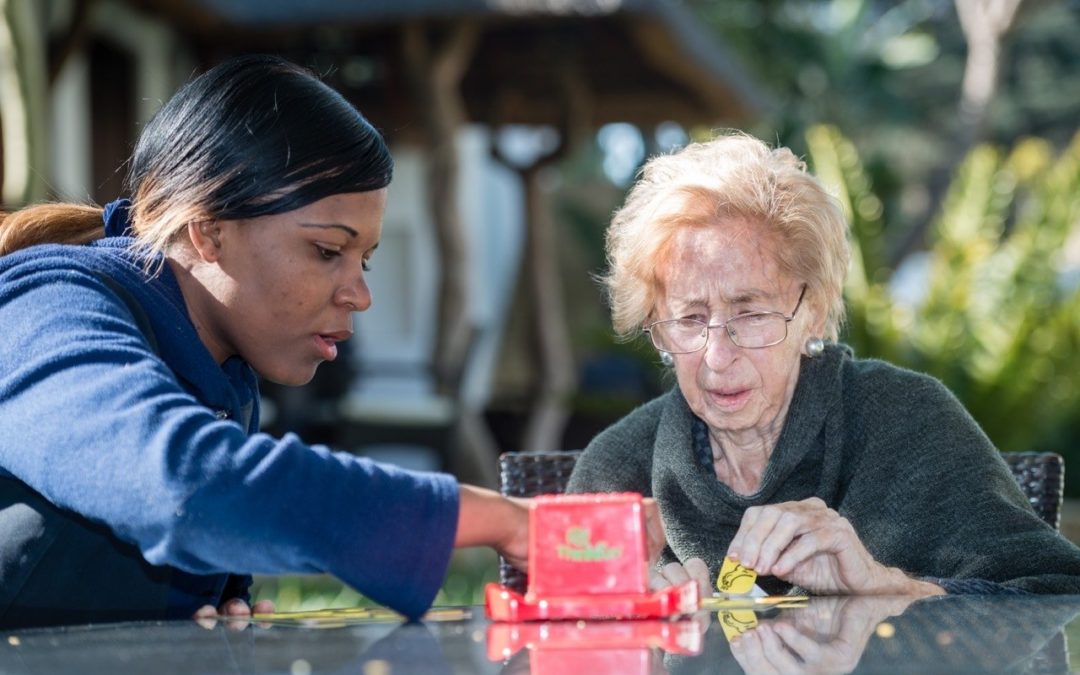“Care givers are often the casualties, the hidden victims. No one sees the sacrifices they make.” (Judith L. London)
Woven deep into one’s being is the love for a spouse or a parent – that someone who we’ve spent a lifetime with, being cared for or cared by. in many ways this defines our lives. This bond, and the promises of care we make to ourselves and our loved ones, (knowingly and unknowingly) forces us to assume the role of care giver once our loved one falls ill.
Care giving is based on love, but as time passes and our loved one becomes more dependent on us, the whole definition and content thereof changes. Holistic care becomes a necessity. What is meant by this is the implementation of a system of comprehensive or total patient care which includes (on an ongoing basis) the physical, emotional, social, economic and spiritual needs of our loved ones. It’s also important to consider their own responses to the illness, and the effect of the illness on their abilities to meet self-care needs. Extreme personal demands are then required from us, changing our perceived role of loving care to the extreme of holistic care.
Holistic care has ‘holistic’ implications for us as care givers. We gradually include all facets of our personal lives into the caring our loved ones. And this is where and when we can get fatigued.
Taking care of a patient who is physically frail can result in immense strain on our bodies (and minds). Strain of constant stress, forcing us to lose our focus on personal reality, and how we feel every day, has the worst impact on our individual well-being and happiness. Our balanced lifestyle of frequent and healthy meals, 7 hours sleep, and exercise, is easily sacrificed in our personal care for our loved ones.
As care givers we tend, emotionally, to believe that we need to be strong and deal with our loved ones emotions, feelings and struggles. Very seldom do we as care givers stop and evaluate our own emotional state. Our feelings of heart ache, loss, worry and doubt are left unaddressed and replaced with guilt. This quickly becomes an unbearable burden and we minimize our ability to experience positive emotions and our outlook on life.
The more dependent such a loved one becomes, the more we, as care givers, are forced to sacrifice time and opportunity for social interaction with our families and friends. In other words we neglect our own support system. This has devastating effects on us and a sense of isolation and loneliness is unavoidable. We then not only have to take responsibility for our loved one’s wellbeing, but also for that of the rest of the family. We are then forced into the role of mediator of all conflict, emotions and communication, leaving no room for resolving our own conflicts or emotions.
Another daunting aspect for us to deal with is the disease itself. How it progresses to gradually steal our loved one from us… The constant raging battle between having realistic expectations and hope… Living with the knowledge that it cannot really change…. This is a never-ending challenge of our patience and hope for possible improvement in the condition of our loved one. This situation tends to change what we notice and don’t notice in the world around us.
In time, care becomes crisis management. Exhausted in every way, we as care giver find ourselves in the midst of compassion fatigue. Compassion fatigue can be described as our physical and mental exhaustion and can, over an extended period of time, lead to our emotional withdrawal as we take care of our sick or traumatized loved ones.
All of the above can lead us to suffer from a condition called “compassion fatigue”. Compassion fatigue is not the same as “burnout”. Burnout is a state of extreme physical, emotional and mental exhaustion, that can be accompanied by a change in attitude – from positive and caring to negative and unconcerned. It has been described as “…the impaired ability to experience positive emotion…”. Compassion fatigue is not as severe and is more easily treated and reversible.
The danger for us is that compassion fatigue, if not treated, can, in the long run, lead to burnout. The challenge for us is to address compassion fatigue, if we suffer from it, by returning to a defined and well-balanced lifestyle with clear self-set boundaries. The only way we can keep on caring for our loved one is by taking care of ourselves. Our self-care is not selfish, it is a necessity, it is a requirement under challenging circumstances. We can only give care if we care! We must protect ourselves! It is in the interest of our loved ones!
(written by Corlia Schutte, Occupational Therapist at Livewell Village Bryanston)
